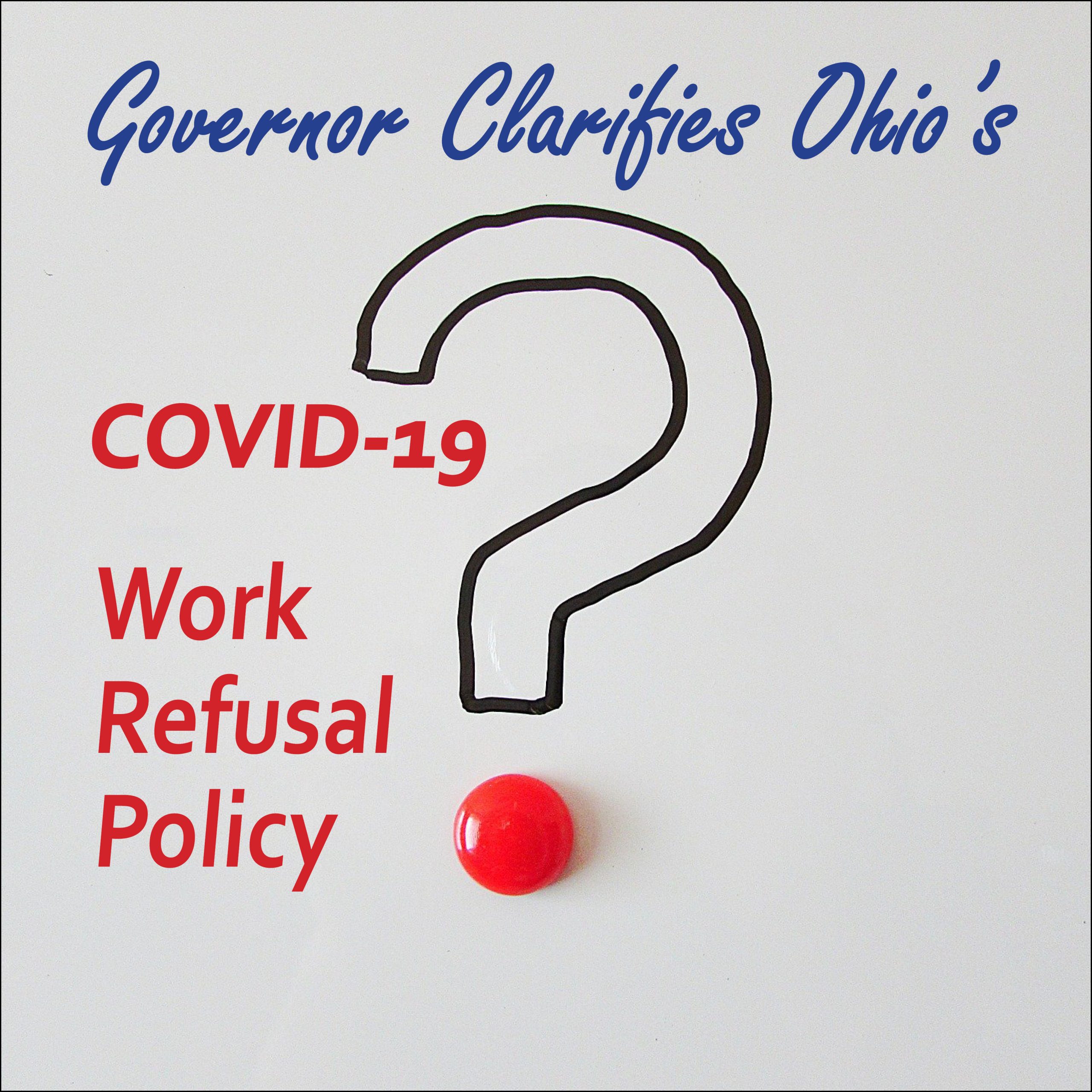Governor Clarifies Ohio’s COVID-19 Work Refusal Policy

As businesses reopen, they’re facing a unique challenge: employees that refuse to return to work because they’re afraid, they have childcare challenges, or perhaps expanded COVID-19 unemployment benefits are more profitable than returning to work.
In an effort to address some of these challenges, Governor DeWine issued an executive order on June 16, 2020 that better defines circumstances in which an employee can refuse to return to work during the COVID-19 State of Emergency.
Generally, under Ohio Revised Code (ORC) 4141.29(D)(2)(b), an individual will lose unemployment who refuses without good cause to accept an offer of suitable work. However, under expanded COVID-19 unemployment benefits what constitutes “good cause” has become difficult to define.
First, the executive order states that when the employee is called back to work in the “same position” “there is a presumption that the position is considered “suitable work.”
Second, the executive order defines what constitutes “good cause” during the COVID-19 state of emergency:
- A medical professional's recommendation that an individual not return to work because
he/she falls into a category that is considered "high risk" for contracting COVID-19 by the Centers for Disease Control and Prevention and the employer cannot offer teleworking options; or - The employee is sixty-five years of age or older; or
- Tangible evidence of a health and safety violation by the employer that does not allow the employee to practice social distancing, hygiene, and wearing protective equipment; or
- Potential exposure to COVID-19 and subject to a prescribed quarantine period by a medical or health professional; or
- Staying home to care for a family member who is suffering from COVID-19 or subject to a prescribed quarantine period by a medical or health professional.
Notably, lack of childcare is not considered “good cause.” It also raises some question such as what does “tangible evidence” of a health and safety violation mean.
Overall, employee advocacy groups declared this a victory for employees, however, it’s also helpful to employers in that it gives them a clearer set of guidelines to work under when requiring employees to return to work.
If employees still refuse to return to work, the Ohio Department of Jobs and Family Services also has an online reporting system for employers to report employees who quit or refuse to return to work. You can find that here.
At Graydon, we will continue to monitor COVID-19 orders and guidance so stay safe and know that we are available to assist you in navigating refusal to return to work issues and all COVID-19 related issues.
Media Contact
- office 513.629.2896
